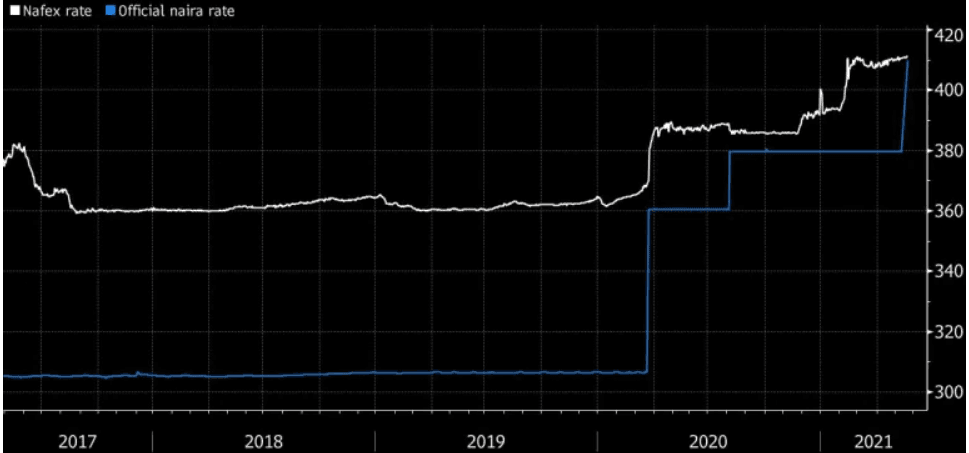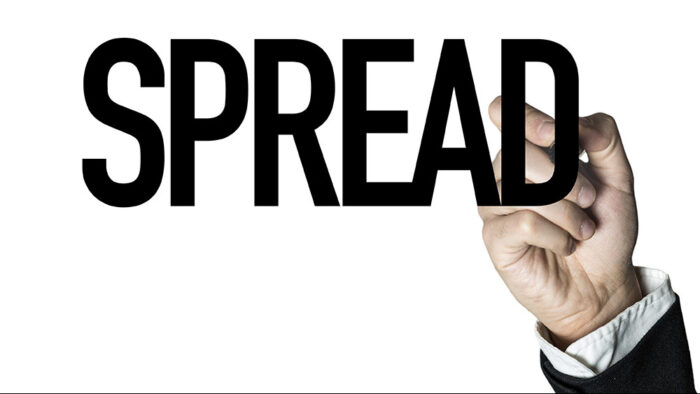Africa’s largest economy launches its CBDC alongside a currency app and a merchant wallet.
Nigeria’s President, Muhammadu Buhari, has officially unveiled the eNaira— Nigeria’s Central Bank Digital Currency (CBDC). On Monday, the launch took place in the country’s state house in Abuja, the Federal Capital Territory. Speaking at the event, the head of state highlighted the potential impact of the e-Naira on the country’s GDP.
“Nigeria has become the first country in Africa and one of the first in the world to introduce a digital currency to her citizens. The adoption of the central bank digital currency and its underlying technology, called blockchain, can increase Nigeria’s gross domestic product by $29 billion over the next ten years.”
According to the Central Bank of Nigeria (CBN), the digital currency will increase cross-border trade and financial inclusion, while making transactions more efficient to improve monetary policy.
eNaira Has Hit The Ground Running
The debut of the eNaira—designed to supplement fiat Naira— was initially scheduled for October 1 – 4, however, this was postponed due to the country’s 61st independence anniversary on October 1. The new CBDC’s value is pegged to the Naira, which has decreased in value against the US dollar. This comes despite the best efforts of the CBN to stabilize the currency.
According to the CBN governor, Godwin Emefiele, the eNaira website has received over 2.5 million visits since its launch. In addition, 33 banks have already connected to the platform, 500 million eNaira ($1.2 million) has been successfully minted, and over 2,000 users have been onboarded. Speaking at the launch, Emefiele said:
“As the tagline simply encapsulates, the eNaira is the same Naira with far more possibilities. The eNaira – like the physical Naira – is a legal tender in Nigeria and a liability of the CBN. The eNaira and Naira will have the same value and will always be exchanged at 1 naira to 1 eNaira.”
To support the currency, the CBN has rolled out a digital currency wallet and a merchant app alongside the eNaira. Both apps are available for download on the Google play store and Apple’s app store.
How Does eNaria Work and How Is It Issued?
The CBN employed the services of Bitt. Inc as a technical partner in the creation of eNaira. Bitt. Inc had previously partnered with the Eastern Caribbean Central Bank (ECCB) and helped them launch their CBDC, D’Cash.

The issuance of the eNaira comes on the heels of the Central Bank of Nigeria (CBN) banning banks and other financial institutions from transacting or operating in cryptocurrencies, citing it as a threat to the nation’s financial system. This is similar to the approach taken in China, where the government prohibited all crypto-related activities while testing its digital Renminbi (e-CYN).
Despite the ban, the rate of crypto adoption in Nigeria has not slowed down. A Chainalysis report titled the Global Crypto Adoption Index report ranks Nigeria as sixth among the top 20 countries globally, with the highest grassroots crypto adoption. This growing adoption may be from the need to hedge against rising inflation and the falling value of the naira.
The strength of the naira has plummeted significantly over the past few weeks against the US Dollar. The currency has continued to weaken as it traded at N415.07/$1 at the investors’ and exporters’ window last week. Data from the Financial Market Infrastructure (FMDQ), one of Nigeria’s financial regulators, shows this sharp decline from where official rates (N380/$1) traded before devaluation set in at the beginning of the year.

Source: FMDQ OTC, Central Bank of Nigeria
Nigeria Joins Bahamas and China In The CBDC Club
The issuance of the eNaira sees Nigeria join a growing list of emerging economies adopting or researching digital currencies. These CBDCs are regarded as a means to increase participation in the formal financial system, while also reducing transaction costs.
Following an extensive and successful testing phase in 2019, The Bahamas became the first country in the world to adopt a CBDC, the Sand Dollar, in 2020. The Eastern Caribbean Central Bank (ECCB) followed through with its launch of the D’Cash in April 2021. Nigeria has now become the third country and the first in Africa to roll out its own CBDC.
China has already made extensive moves to create a digital renminbi (e-CYN) and integrate it into the country’s banking system. The trial of the pilot e-CYN entered a new phase with its extension to cover more regions in mainland China while also allowing cross-border transactions in Hong Kong. Other countries like France and Switzerland are testing the functionality of the CBDC. At the same time, the likes of Ghana and South Africa are also trying digital forms of their legal tenders.
While some countries adopt their own CBDCs, others like El Salvador have adopted Bitcoin as legal tender. CBDCs are national currencies, as opposed to their crypto counterparts, such as Bitcoin and Ethereum, coveted because they are not tethered to fiat money.
—
Originally Posted on October 26, 2021 – Nigeria Follows Bahamas and China With CBDC Rollout
Disclosure: Tim Fries has no positions in any of the investments mentioned, and has no plans to initiate any positions within the 72 hours following the publishing of this article. This article expresses the opinions of Tim Fries. Tokenist Media LLC has no position in any of the investments mentioned, and does not plan to initiate any positions within 72 hours of the publishing of this article. Please consult our website policy for more information.
Disclosure: The Tokenist
Neither the author, Tim Fries, nor this website, The Tokenist, provide financial advice. Please consult a licensed financial advisor prior to making financial decisions.
Disclosure: Interactive Brokers
Information posted on IBKR Campus that is provided by third-parties does NOT constitute a recommendation that you should contract for the services of that third party. Third-party participants who contribute to IBKR Campus are independent of Interactive Brokers and Interactive Brokers does not make any representations or warranties concerning the services offered, their past or future performance, or the accuracy of the information provided by the third party. Past performance is no guarantee of future results.
This material is from The Tokenist and is being posted with its permission. The views expressed in this material are solely those of the author and/or The Tokenist and Interactive Brokers is not endorsing or recommending any investment or trading discussed in the material. This material is not and should not be construed as an offer to buy or sell any security. It should not be construed as research or investment advice or a recommendation to buy, sell or hold any security or commodity. This material does not and is not intended to take into account the particular financial conditions, investment objectives or requirements of individual customers. Before acting on this material, you should consider whether it is suitable for your particular circumstances and, as necessary, seek professional advice.
Disclosure: Bitcoin Futures
TRADING IN BITCOIN FUTURES IS ESPECIALLY RISKY AND IS ONLY FOR CLIENTS WITH A HIGH RISK TOLERANCE AND THE FINANCIAL ABILITY TO SUSTAIN LOSSES. More information about the risk of trading Bitcoin products can be found on the IBKR website. If you're new to bitcoin, or futures in general, see Introduction to Bitcoin Futures.

















